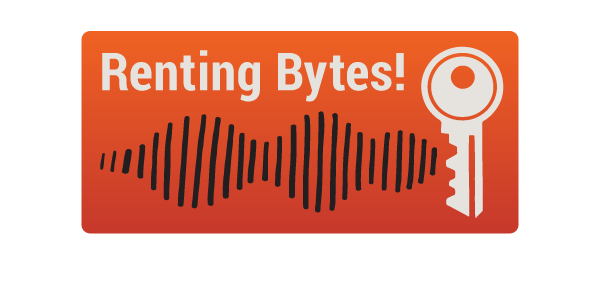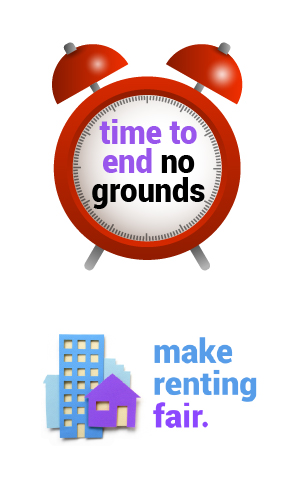If your landlord wants to end your agreement

This is an Aboriginal Tenants' Factsheet. For more general information see Landlord ends agreement.
WHAT DOES THE LANDLORD HAVE TO DO TO END YOUR AGREEMENT?
In most cases, the landlord or agent must give you a termination notice. If you don’t move out by the day in the notice, the landlord can ask the NSW Civil and Administrative Tribunal (NCAT) for a termination order.
A termination order means the rental agreement is ended. The order will state the day when you must give vacant possession – that is, you move out and return the keys. It is best to return the keys in person.
Social housing providers
A social housing provider can end a rental agreement for many reasons, for example if you are not eligible for social housing. Call your local Tenants Advice and Advocacy Service for details.
WHAT IS A TERMINATION NOTICE?
A termination notice must be in writing and signed by the landlord or agent. It must include:
- the address of the premises
- the date when the landlord or agent wants possession
- the grounds (reasons) for termination, if any.
The landlord or agent must properly send or deliver the notice to you. It can be in person, by post, by hand to your mailbox or by email if you have said they can use email to give you notices.
HOW MUCH NOTICE MUST THE LANDLORD GIVE YOU?
This depends on the type of rental agreement and the grounds (reasons) for termination – see the table below.
A fixed-term agreement is for a specified time (e.g. 6 months). A periodic agreement is where the fixed term has ended, or no term is stated in your agreement.
Minimum notice periods
|
Grounds (reasons) |
Fixed-term agreement |
Periodic agreement |
|---|---|---|
| No grounds (no reasons) | 30 days at end of term | 90 days |
| Sale of premises | Does not apply | 30 days |
| Breach by you of the agreement | 14 days | 14 days |
The landlord or agent can give you immediate notice if the premises are destroyed or become wholly or partly unliveable.
For all agreements
If you do not meet your obligations under the agreement (you ‘breach’ the agreement) the landlord or agent can give you a 14 day termination notice.
The landlord or agent can give you a non-payment termination notice if you owe at least 14 days rent or you are 14 days behind on your water usage and/or utility charges. You may avoid the notice if you pay all the rent and other charges owing. Try to work out a repayment plan with the landlord or agent.
It is legal for you to overstay the notice, but if you do, the landlord or agent can ask the Tribunal for a termination order. The Tribunal may decide not to end the agreement if you can show that you have fixed the problem.
For a fixed-term agreement
The landlord or agent cannot end your agreement without a reason (no grounds) before the last day of a fixed-term agreement. The landlord can give you 30 days notice to end your fixed term agreement. The last day they can give you 30 days notice is on the last day of your fixed-term agreement.
You can leave at any time before the date on the notice, but you will have to pay the rent until the end of the fixed term.
Note: if you have a fixed-term agreement, it cannot be terminated just because your place is being sold.
For a periodic agreement
The landlord or agent can end the agreement without giving you a reason but they must give you 90 days notice. If the landlord decides to ask for a termination order, the Tribunal must terminate the agreement.
Your agreement can also be terminated if your place is being sold. The landlord can give you a 30 day termination notice. Ask your Tenants Advice and Advocacy Service for advice.
You can move out and stop paying rent at any time before the date on the notice.
WHY DID YOU GET A TERMINATION ORDER BUT NO TERMINATION NOTICE?
The landlord or agent can apply to the Tribunal for a termination order without giving you a termination notice, but only for these reasons:
- You, your guests, another occupant or their guests have caused or allowed:
- serious damage to the place or any neighbouring or common property
- injury to the landlord, agent, the landlord’s or agent’s employees, or your neighbours
- using the place for illegal purposes.
- You or another resident have seriously or persistently threatened or abused the landlord, agent or the landlord’s or agent’s employees.
The Tribunal may make a termination order and may order you to move out immediately.
If the landlord or agent has applied to the Tribunal for a termination order, you should ask your local Tenants Advice and Advocacy Service for help.
If you do not move by the day in the termination order, the landlord or agent can get a warrant for possession from the Tribunal. With this warrant, a sheriff’s officer can remove you from the premises – with police help if needed.
EVICTION – WHAT ARE YOUR RIGHTS?
The landlord or agent must follow the proper processes before you can be evicted. Anyone locking you out without a Tribunal or court order can be fined up to $22,000 and be ordered to compensate you.
A retaliatory eviction is when a landlord or agent acts to end the rental agreement because you have tried to enforce your legal rights (such as asking for repairs). Call your local Tenants Advice and Advocacy Service if this happens.
You can apply to the Tribunal to make an order that the notice was retaliatory. In this case, the Tribunal may declare that a termination notice has no effect.
NEED SOME HELP?
Call your local Aboriginal Tenants' Advice and Advocacy Service for free advice. Find your service here.
Last updated April 2020




